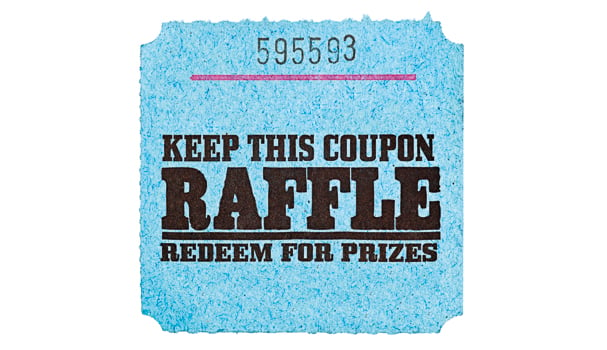There are plenty of excellent reasons to run promotions on your product or services, with perhaps the primary factors being associated with raising brand awareness and securing customer loyalty. However, just as you would spend time analysing a promotion from a branding or financial perspective, it’s equally important to understand the legal aspects before forging ahead.
The laws of the land when it comes to promotions are dictated by the Committee of Advertising Practice (CAP) – an organisation administered by the Advertising Standard Authority (ASA) – and its UK Code of Non-Broadcast Advertising, Sales Promotion and Direct Marketing, which is colloquially referred to as the CAP code. “The CAP code provides significant guidance on what you should be telling your participants,” explains Claire Hyatt, associate in the commercial team at Stevens & Bolton. “The overarching principles are about the promotions being legal, decent and truthful, and being responsible towards consumers.” This covers a wide remit, everything from how they should respond and when the promotion closes to any potential restrictions on entry.
One of the key legal factors you need to consider is making sure you know the manner of promotion you are operating. “There’s quite a bit of confusion with the terminology – legally speaking the different terms have quite different meanings,” says Hyatt. Most promotional campaigns will be built on at least some of the following factors: the customer is entering to win a prize. That prize is awarded based on random chance. And customers are required to pay to enter. Legally, any promotion that contains all three factors is defined as a lottery. “Make sure it’s not a lottery,” she states. “That’s a really heavily regulated area under the Gambling Act 2005; you have to have licences.”
However, many promotions avoid this trap. “The way to get round that is to either run your promotion as a competition or a free prize draw,” explains Hyatt. The first option is to remove the need for payment and run your promotion as a free prize draw; often enterprises are more interested in using promotions to draw in users than drawing down revenue, and boosting the traffic to your website can be far more valuable than a few pennies from a premium rate number. The alternative is to remove the randomised factor and run it as a competition. “You add a skill element,” she says. “It’s no longer by chance so you’ve taken it out of the remit of a lottery that way.”

So, are we looking at the source of the ubiquitous ‘no purchase necessary’ clause on consumer promotions? “Actually, you don’t have to say that any more,” reveals Hyatt. The important thing is that consumers aren’t charged to enter a draw; tying a promotion to a commercial product is perfectly acceptable as long as the consumer isn’t paying any extra for the promotion. By way of example, Hyatt talks about a promotion run on a soft drink. “If I had to pay 50p to buy the can, which is the only way I can enter the promotion, that’s okay,” she says. “What’s not okay is if they charge me £1.50, inflating the price to give me the chance of entering.”
As can be gleaned from this information, the terms and conditions required around promotions aren’t the briefest. This is all well and good when running a promotion online but when you’re trying to squeeze clauses of information on a crisp packet, suddenly things get a lot more tricky. “Obviously, from a marketing point of view, you don’t want to make the thing unattractive because it’s dominated by text,” says Hyatt. “In those cases, the guidance is to provide the key pieces of information upfront as much as you can and a link to the terms and conditions (T&Cs) and where they can be accessed.”
Like a lot of regulations, it can seem easier just to assume compliance, rather than making sure you’re covered, but the implications of breaching the regulations can be costly indeed. “For the CPRs I just mentioned, the penalties for the breaches are quite severe and include fines and imprisonment,” comments Hyatt. As a rule, the enforcements of the ASA’s CAP codes are less strict but the organisation still takes breaches very seriously. Campaigns in breach will be forcibly withdrawn – embarrassing enough in itself – but the worst cases could also be passed onto the Office of Fair Trading. Additionally, it has one more trick at its disposal – to name and shame regulation breakers. “If they get a complaint about a promotion, they can investigate and they can publish their adjudication online,” says Hyatt. “I imagine that’s the biggest deterrent for a lot of businesses.”
Unfortunately, there are areas where the boundaries are nowhere near as clear cut. An area where promotions have really taken off in recent years is social media. It has become a familiar sight to organisations and enterprises offering giveaways and promotions for likes or retweets – but how do these promotions square with current legislation? “The sales promotion itself is still a sales promotion so there’s no reason that the CAP code wouldn’t apply,” comments Hyatt. However, something that is often missed by enterprises is that the consumer regulations aren’t the only legal terms they’re answerable to – they need to be sure that they’re complying to the social networks’ own T&Cs.
While she recommends people check the terms for themselves, Hyatt has noticed, for example, that there are certain common practices that have been expressly prohibited by Facebook. “They actually prohibit people from running promotions where winners like stuff or have to post a picture to win,” she says. Another example is that enterprises shouldn’t be running promotions direct from their timelines, instead merely linking to promotions elsewhere. “It seems crazy that’s the case because there are so many people doing that but actually according to the guidelines you’re not supposed to.”
But despite some tricky facets, running promotions is an excellent way to boost participation and awareness. Just make sure you’re following the letter of the law. ![]()
Share via:


















































